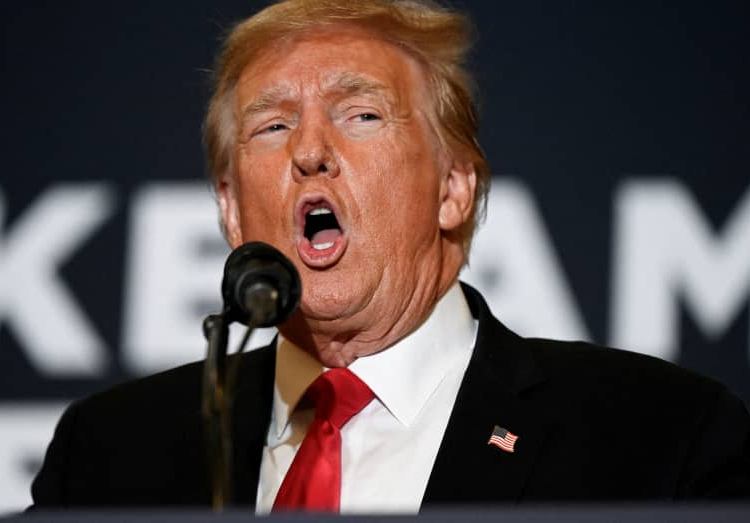As Donald Trump prepares to take office as the 47th President of the United States today, his return to the White House signals what could be the most consequential shift in American governance and global geopolitics in recent memory.
His victory over Kamala Harris in the November elections, while stunning to many observers, follows a campaign that promised not just a continuation but an amplification of his “America First” agenda.
Yet what stands out most notably in Trump’s second-coming narrative is not just the policies he proposes but the unprecedented scope of territorial ambitions that threaten to reshape the North American continent itself.
In the considered opinion of this newspaper, Trump’s recent pronouncements about annexing Greenland, reclaiming the Panama Canal, and absorbing Canada as the 51st state represent a dramatic departure from established international norms.
While some might dismiss these statements as mere rhetoric, Trump’s first term demonstrated that his most controversial declarations often presaged actual policy initiatives.
His willingness to openly discuss using military force to acquire Greenland and economic coercion to pressure Canada reveals a troubling vision of American imperialism that could fundamentally alter long-standing alliances and international relationships.
The president’s immigration agenda for his second term is particularly concerning. His pledge to implement the “largest deportation” effort in U.S. history, coupled with promises to complete the border wall and reinstate the “Remain in Mexico” policy, suggests an even more aggressive approach than in his first term.
In our view, these policies, if implemented, would not only affect millions of lives but could also strain diplomatic relations with neighboring countries and impact America’s labor markets.
Trump’s economic vision, centered on energy independence and manufacturing revival, appears to double down on policies that defined his first term. The emphasis on traditional energy sources over renewables, combined with promises of new tax incentives for domestic manufacturing, indicates a continued rejection of global climate initiatives and international trade partnerships.
While such policies might appeal to his base, they risk further isolating the United States from global economic trends and environmental commitments.
Perhaps most worrying is Trump’s approach to foreign policy, particularly his cavalier attitude toward the ongoing conflict in Ukraine. His claim that he could end the war “in 24 hours” without providing any substantive plan exemplifies a dangerous oversimplification of complex international conflicts.
This approach, combined with his stated intention to reassert a tough stance on China while maintaining his peculiar relationship with leaders like Russian President Vladimir Putin and North Korean leader Kim Jong-un, suggests a foreign policy that could destabilise existing global alliances and security frameworks.
The implications of Trump’s agenda extend far beyond American borders. His proposed territorial expansionism, if pursued, would not only strain relationships with traditional allies but could fundamentally alter the international order.
The notion of forcibly acquiring territory from sovereign nations like Denmark (Greenland) or pressuring Canada into absorption represents a throwback to 19th-century imperialism that has no place in modern international relations.
For Africa, Trump’s return presents a particularly complex challenge. While initiatives like Prosper Africa have facilitated significant economic engagement, Trump’s previous derogatory comments about African nations and his apparent interest in the continent primarily as a battleground for competition with China suggest a transactional approach that could undermine meaningful partnership.
The world must prepare for a potentially turbulent period ahead. Trump’s first term demonstrated that his unconventional approach to governance and international relations can have far-reaching consequences.
His second term, unencumbered by reelection concerns and emboldened by previous experience in office, could prove even more disruptive to the established global order.
The international community, therefore, must strengthen institutional safeguards and diplomatic channels to maintain stability in the face of potential American unilateralism.
Nations targeted by Trump’s territorial ambitions must unite in their rejection of such advances while maintaining constructive dialogue with the broader American political establishment. The challenge will be to navigate this period without allowing essential international cooperation on trade, climate change, and security to completely unravel.
As Trump starts his presidency today, the world stands at a crossroads. The choices made in response to his agenda will determine not just the future of American democracy but the shape of international relations for generations to come. The stakes could not be higher, nor the need for vigilant and principled opposition to overreach more urgent.
The world must now confront the reality that the leader of the world’s most powerful nation appears intent on pursuing policies that could fundamentally destabilise international relations while simultaneously weakening the very alliances and institutions that have historically helped prevent global conflicts.
This dangerous combination of isolationism and expansionism poses a significant threat to global peace and stability – a threat that the international community cannot afford to ignore.





